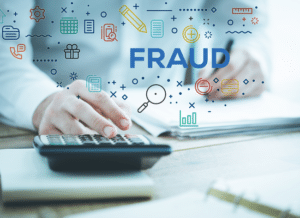Many Americans have taken steps in recent years to protect their identity. However, one report found identity theft hit an all-time high in 2016, affecting an estimated 15.4 million consumers. If you haven’t taken measures to protect yourself, it may be a good idea to consider your options.¹
Tip: If You’re a Victim
If you think you may have had your identity stolen, take action immediately. Start by contacting the Federal Trade Commission (www.ftc.gov), where you can find information about what to do next.
Fast Fact: One well-known case of identity theft involved criminal-turned-FBI-consultant, Frank Abagnale, Jr. During a five-year period in the 1960s, Abagnale assumed at least eight separate identities and amassed millions of dollars using forged checks.
Identity theft is a crime in which an individual illegally obtains and wrongfully uses another person’s personal information — such as a Social Security number, bank account number, or credit card number — generally for financial gain. Once a thief has possession of your personal information, it may be used to obtain a loan, run up credit card debt, or commit other crimes.

Individuals take four steps to help protect themselves against identity theft. These steps are represented by the acronym SCAM.
S — Be stingy when it comes to giving out your personal information. Make sure the person requesting the information is on a “need-to-know” basis. For example, someone who claims to be calling from your bank does not need to know your mother’s maiden name if it’s already on file with the bank.
C — Check your financial information periodically. If you get hard-copy credit card or bank statements mailed to you, consider keeping these documents in a safe, secure location. Be skeptical if it appears the financial institution missed a month. Identity thieves may try to change the address on your accounts to keep their actions hidden from you for as long as possible.
A — From time to time, ask for a copy of your credit report. This report shows bank and financial accounts in your name and may help provide evidence if someone has used your name to open another account. To obtain a report, contact any of the three major credit bureaus, Equifax, Experian, or Transunion.
M — Maintain good records of your financial accounts and obligations. Experts recommend that you keep hard copies or electronic versions of monthly bank and credit card statements. Easy access to this information may make it easier to dispute a transaction, especially if your signature has been forged.
Recent trends indicate that government agencies, credit card companies, and individuals have become smarter about protecting personal information and identifying perpetrators.
Nevertheless, having your identity stolen may result in out-of-pocket financial loss, plus the additional cost of trying to restore your good name. Help protect yourself by using caution when sharing your personal information and keeping an eye out for warning signs.
- USA Today, February 6, 2017
Councilor, Buchanan & Mitchell (CBM) is a professional services firm delivering tax, accounting and business advisory expertise throughout the Mid-Atlantic region from offices in Bethesda, MD and Washington, DC.
© 2018



